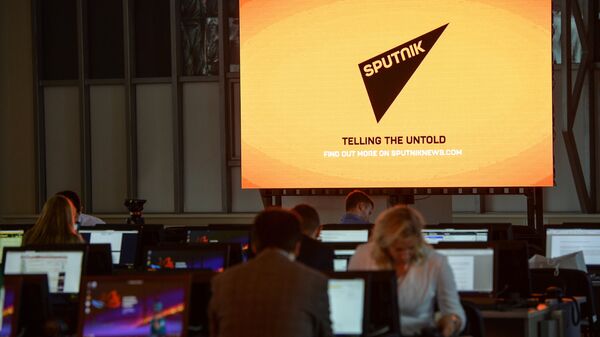Margarita Simonyan said she would be happy if Facebook, which had removed hundreds of pages related to the Sputnik news agency, explained what violations on the part of these pages had led to this move.
"Facebook has acknowledged in its own statement it had nothing against the content published on these pages. We have not violated any Facebook rules or any rules of normal life. What rules we have violated and what they have against us — we have been unable to figure this out for a whole day, apart from the fact that all the pages that were blocked are either the pages related to Sputnik or those belonging to Sputnik journalists. There are no other reasons [behind the removal of the pages] … We will be happy is Facebook explains to us, what wrong have these pages done except for the fact that they were run by our employees", Simonyan said.
"If it is not censorship and if we will continue believing that Facebook is a liberal media and a platform to share liberal ideas, we are, probably, very badly informed or we are just fools", Simonyan suggested.
On Thursday, the high-tech company said that it had shut down over 500 pages, groups and accounts that were allegedly involved in "coordinated inauthentic behavior" on Facebook and Instagram and represented a network reportedly originating in Russia and operated in the Baltics, Central Asia, the Caucasus, and Central and Eastern European countries.
READ MORE: Disappointed Users Struggle to ‘Delete’ Facebook Despite Privacy Woes
The social network, in particular, claimed that Facebook pages which were thought to independently disseminate news or provide content of general interest to its subscribers "were linked to employees of Sputnik".
READ MORE: UK Gov't Spent $122,000 Past Week to Promote Brexit Deal on Facebook — Reports
Russia-based media outlet Sputnik and RT have repeatedly come under attack by Western officials, who blamed the news outlets for alleged attempts to sway public opinion worldwide. The leadership of the broadcasters, as well as the Russian authorities, dismissed the claims, suggesting that mainstream media were not interested in the presence of an alternative coverage of events, and condemned the accusations as attacks on free media.




